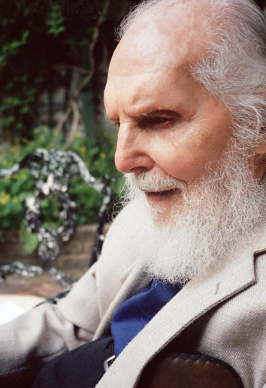Sonic Format


Audio Drama
Every Drama Format uses Courier 12pt. Avoid fancy fonts, stick with plain Courier. Every script reader expects it when they read your script.
It's bare-bones, no pretensions - makes the text stand out & that's why we use it.
In Audio Movies, we begin where all stories once began - in the dark of a deep night. People listen as the events of the day turn into stories.
This first
Format Sheet & assignment deals with Radio Drama. It's the initial one we use, and will
prove to be different from almost every other format you'll learn. For one
thing, it uses double spacing and the other formats we'll study don't do that.
Only single-spacing for all the others. But right now - one format
at a time; one step at a time.
One thing I always stress in this workshop - learn the format as you go. I
do NOT expect you to become an expert in this right away. Instead, think of
your story, how you want to write it, what sounds you hear, what music you'd
like. Set it down your own way & when that's done, focus on your format.
Radio Drama begins with the first element of drama – Sound. This
may be the most simple drama format – but it requires listening to the world.
That's something we don't do as much in this visual age.
Recall any film you love, and then consider its use of the soundtrack, of the sound effects themselves. Listen for the way a chill wind on the corner of an old house may make us shiver in fear. Listen to the sound of a distant train whistle, & you'll understand the nature of Sound in cinema.
What's required for Radio is to begin paying close attention to the sounds of the world around you - right where you live.
For this reason, listen – keep your ears perked for what we learn when we can't see. Sit in a room, close your eyes and pay attention to what sounds will tell you on their way through walls, up the stairs, from across the street, in darkest night. Consider what those sounds tell you. Notice how the words I just set in Italics point to movement we may sense by sound alone.
Jot down what you learn. Do keep notes & if you already use a Journal, great!
Radio Drama Format:
Radio Drama format itself, like all formats, has a simple function. The format itself I obtained free of charge from Tony Palermo's Radio Drama website. I'll include the link at the end of the posting & is designed to allow you to write a radio drama and focus on the most important elements of the form.
In addition, it will allow any Producer or Director to pick up a script and know, by the time she's finished reading it, what production elements are necessary to produce your script. The document tells them how many sound effects will be needed, and where they are to be placed. It lets those who'll produce your script know where music cues are expected, what characters are in your script, and what settings are intended for your drama.
Because this format has, of course, no visuals, the focus in the script goes on Sound Effects, Music Cues, Narration, and Action. The visuals in Sonic Theatre emerge in the reader's or listener's mind from the dialogue, the effects and the music. They also emerge out of the rhythm of the piece, and the characters you've created.
This script format, as all script formats, exists in present tense.
When you describe where characters move, what they're doing, and how they look – the tense used is always present tense. It isn't that your character 'crossed the room,' your character 'crosses the room' the same characters never 'drove their cars' they always 'drive their cars.' Even if your drama is set in the past, your description is always done in the present tense.
If you write a futuristic script, the descriptions still remain in present tense.
This is for a very good reason – the moments in a drama are always 'now.' No matter how far ahead in the future, nor how far back in the very distant past, what we hear and what we see is always 'now.'
As for your characters, however, they get to speak in any tense they choose – for they're very much like us; although they live in the present they may speculate about the future, wonder about the past and say whatever they wish. Radio action description however, has one simple rule – present tense.
The focus in Sonic Theatre, or Radio Drama, of course, is on the ear – what we learn from the ear. Every day we use our hearing the same way that Radio Drama 'uses' hearing. Our visual field is actually fairly narrow – much like the view an astronaut has from her spacesuit. It's an eye shaped visual field. Almost all is to the side of us, and everything behind us is 'created' by sound and memory.
So the first things we use in radio drama are sounds and memories of the world we create.
As you write your radio drama, become aware of how much you use your ears. Instead of listening to MP3 songs as you walk around, spend a day and a night listening to what you learn about your environment from your hearing. How do you know what's behind you?
If you enter a new space, observe how much you rely on your hearing to give you advance information. As you walk along the street how early do you hear those who approach you?
Notice how voices create perspective for you – if you were blindfolded, could you still tell where people are when they're speaking or moving? How do you do this?
Close your eyes and imagine a scene from the past – something vivid and important - what do you 'hear' when you remember this?
Well, this gives you the basic idea. In this dramatic form you concentrate on what people say, how they say it, and the context in which they speak their dialogue. Are they in a meadow near a stream, or are they working inside a paper mill? This will make a huge difference in the way dialogue is delivered. Two people holding a conversation in a meadow will speak very differently from two people having a conversation on a catwalk above machinery. The format in radio drama is designed to reveal the sonic environment of your drama.
Oh yes, the reason that Radio Drama is written in double-spaced format with a frequent use of ALL CAPS is because the format was developed in the days of live Radio.
An actor would frequently arrive at a studio just in the nick of time, and would be handed a script typed on soft paper (no rattling of pages) and would sometimes have to, with no rehearsal time, perform in a complex drama. The large typeface, and the spacing meant that a script could be performed in a 'cold reading' and there was still an excellent chance of it being presented the way the writer intended.

Now on to the script itself. Here's a sample of how this would work – for at least one hapless writer.
SCENE ONE: APARTMENT- WRITING ROOM - DAY
1. MUSIC: SINISTER MUSIC. ESTABLISH. CONTINUE UNDER.
2. SOUND: SOUNDS OF TYPING, THE KEYBOARD RATTLING AS THE WRITER SLAMS THE KEYS
3. WRITER: Complain about my typing will you! Read this e-mail and weep!!!
4. SOUND: BURST OF TYPING. SOUND OF APPROACHING FOOTSTEPS IN APARTMENT BUILDING HALLWAY. KNOCKING AT THE DOOR – AT FIRST LIGHTLY.
5. WRITER: (MUTTERING) go away!
6. SOUND: KNOCKING INCREASES.
7. WRITER: (YELLING) Go away, I said!!! Where was I? Oh yeah. "…because you are the worst neighbor I've ever known. Even though you're known in the building as a Homicidal maniac – I still want to let you know that I don'tgive a crap! Your pathetic threats don't scare me…"
10. SOUND: DOOR SPLINTERING AS THE SOUND OF AN AXE CLEAVES THE WOOD.
11. WRITER: On the other hand, an axe through the door? That scares me!
12: MUSIC SINISTER MUSIC SWELLS, THE AXE CUTS THROUGH THE DOOR ON THE BEAT. THE KEYBOARD IS SLAMMED WITH EVEN GREATER VIGOR.
13. WRITER . . .Before I sign off, I do think there's something to be said for complaints. How could I modify my behavior if you didn't take your favorite axe, and . . .
14. SOUND: THE DOOR SPLINTERS. FOOTSTEPS STAMP TOWARDS THE KEYBOARD. THERE IS THE SOUND OF AN AXE CUTTING THROUGH THE AIR, AND A MONITOR BEING CUT IN TWO; IMPLODING WITH FORCE. A STRUGGLE; A SCREAM. THE FOOTSTEPS WALK AWAY. THE SHATTERED DOOR FALLS OFF ITS HINGES. PIECES OF WOOD HIT THE FLOOR. ALL IS SILENT EXCEPT FOR THE DISTANT SOUND OF HEAVY FOOTSTEPS WALKING AWAY DOWN THE HALLWAY.
For the source of this template, as well as much interesting writing about the form, please go to:
RADIO DRAMA LINKS:
Click around, follow your own paths.
Don't worry - the mind remembers; the body discovers its new writing habits.
Writing is an experiential form - you learn by doing. Start playing with these forms - there are no tests on how well you followed links - this is about discovering the form of each kind of drama. We approach all learning in here as a process - acquiring the tools of the trade - in our own way; each & every one of us.
Radio Drama Resources Radio Drama Writers Kit are also at:
-http://ruyasonic.com/downloads.htm
There's also a Radio Drama Writer's Kit. The site also has a very useful essay "Adapting Shakespeare for Radio Dram,"
Tony Palermo's extensive and valuable site has a good template for Radio Drama.
As well, we have templates for Word & Open Office. Lots out there.
RADIO & COMEDY:
Radio has a history (especially in the 'golden' era of Radio Comedy...
Just a couple of examples...
The Great Gildersleeve:
http://www.greatgildersleeve.com/
Free Download of Complete BBC Radio Serial.
Here’s a Radio Serial that played in first in 1938. Played every year since then.
http://archive.org/details/ChristmasontheMoon